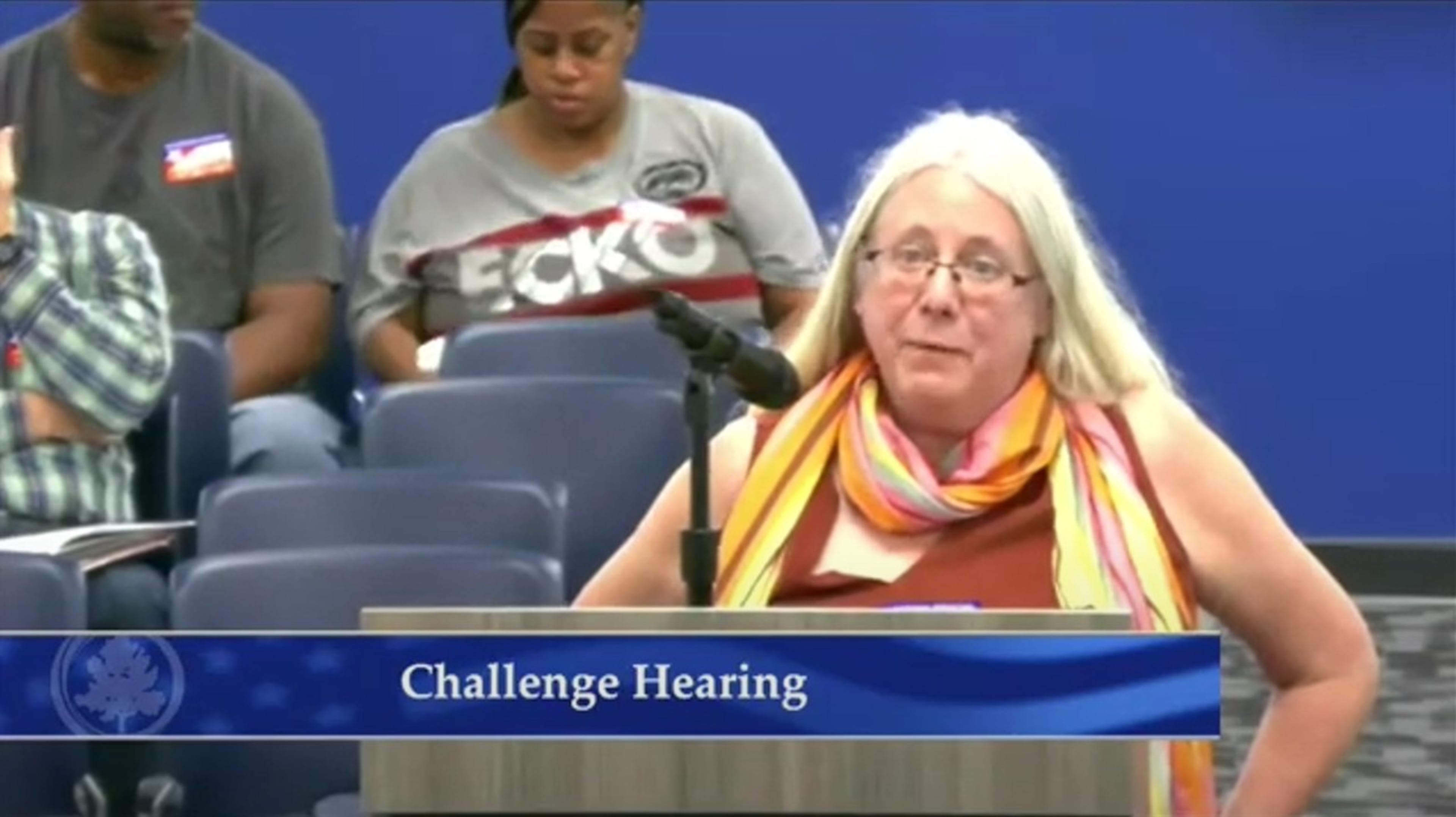Once a GOP mission, voter eligibility challenges taken up by Democratic counties

Since the 2020 election year, Republican activists have challenged the eligibility of hundreds of thousands of Georgia voters, an effort that was repeatedly stymied by local election boards.
Now election boards in two large Democratic-leaning counties — who previously rejected many of those challenges — are taking on the task of reviewing voters who appear to be improperly registered at Post Office boxes, UPS stores or other nonresidential addresses.
The local government efforts to police invalid voter registrations follows years of fights between conservatives who want to prevent the possibility of illegal voting and liberals who fear eligible voters could be canceled.
In Fulton County, about 2,000 voter registrations are being challenged next month. Gwinnett County also plans to identify voters who listed their addresses at P.O. boxes and private mailboxes, which could include hundreds of registrations.
While Georgia election laws allow residents to challenge voters’ credentials, the county government can research voter eligibility in a more deliberate way, said Gwinnett Elections Supervisor Zach Manifold.
“This is a much improved process over an individual voter challenge,” Manifold said. “We want voters to be registered at their address where they’re living. We want that to be as accurate and as correct as possible. It ensures voters are voting in the correct races and districts.”
But valid voters can still face hurdles.

Maria Williamson told the Fulton elections board this month that the county challenged her registration because she lives at her Buckhead antique store, which the county identified as an invalid commercial address.
“I live there, and I cannot be disenfranchised because I’m not a suburban housewife,” Williamson told the board.
Another Fulton voter faced a similar challenge because he also lived at a commercial address, a warehouse.
The board voted to remove them from the list of voters whose registrations were being challenged. The board voted to put 23 other voters in “challenged” status, meaning they must verify their eligibility before they can vote.
Earl Ferguson, a Fulton County Republican who has previously attempted to challenge voters’ eligibility, praised the county for working to correct or remove ineligible registration addresses.
“I’m proud of them for doing this. They’ve never done it before when I’ve been involved,” Ferguson said. “It’s progress.”

The American Civil Liberties Union of Georgia said it isn’t necessary for counties to initiate voter challenges.
“Counties are responding to the incessant pressure to ‘clean their voter rolls,’ requiring use of already limited resources for duplicative or erroneous list maintenance,” said Rachel Lastinger of the ACLU’s Voter Access Project. “The state’s voter list maintenance system is effective, and counties already notify the state of necessary changes in voter status.”
Fulton Election Board Chair Sherri Allen and the county’s elections department didn’t answer questions or agree to an interview this week.
About 250,000 voter challenges were filed in 2020 and over 100,000 more since then. County election boards dismissed most of the challenges. During the last year, Republicans have filed fewer voter challenges.
Part of the reason for the county-led voter eligibility reviews was a Georgia law passed last year, Manifold said.
The law, Senate Bill 189, clarified that P.O. boxes and private mailbox services addresses are inadequate to establish a voter’s residency.
“A lot of the Democrats I’ve heard from are very suspicious anytime a Republican gets up to challenge voters. The county bringing it forward is seen as much more objective,” said David Hancock, the Republican chair of the Gwinnett elections board.
“I want everyone who’s legally able to be able to vote, but we need to have accurate information” to ensure voters’ ballots listing the correct candidates for their address, he said.
Voters facing challenges are mailed notification letters and given an opportunity to change their address or provide proof of their residence.
Fulton and Gwinnett’s efforts focus on finding nonresidential addresses. Unlike voter challenges from residents, the counties aren’t attempting to identify voters who have moved or registered in another state. It’s unclear whether other counties will take similar actions.
About 455,000 inactive voters, most of whom moved from Georgia, are scheduled to be canceled by the secretary of state’s office this summer, one of the largest removals of registrations in U.S. history.
There are currently 8.4 million registered voters in Georgia, and nearly 5.3 million of them turned out in last fall’s election.



